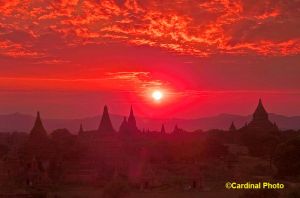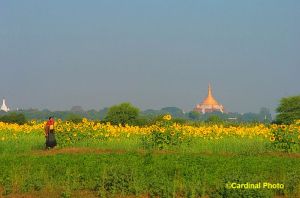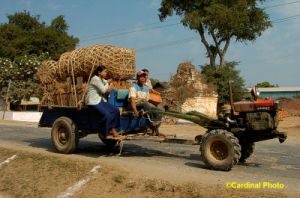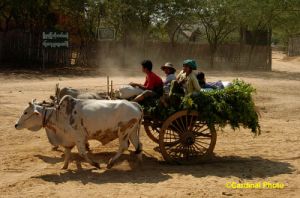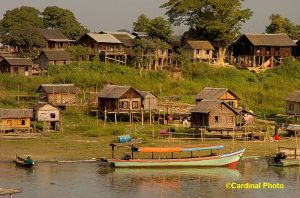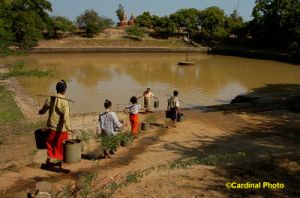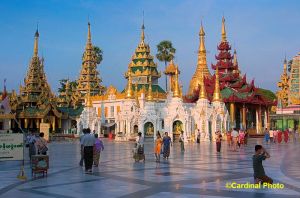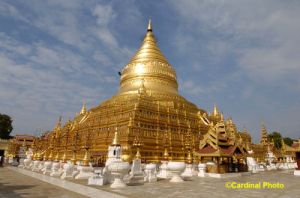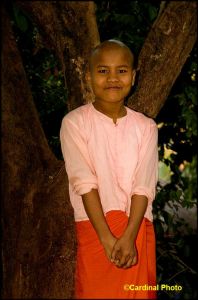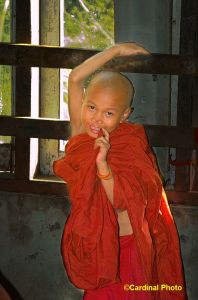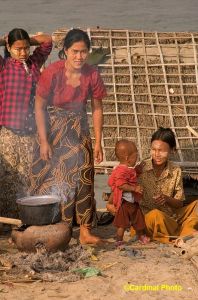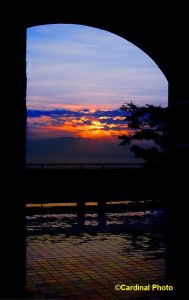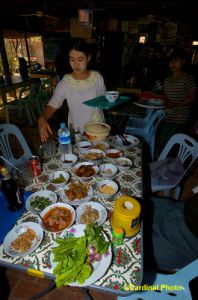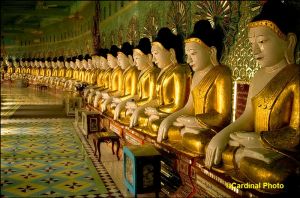- Photo Safaris
- Alaska Bears & Puffins World's best Alaskan Coastal Brown Bear photo experience. Small group size, idyllic location, deluxe lodging, and Puffins!
- Participant Guestbook & Testimonials Candid Feedback from our participants over the years from our photo safaris, tours and workshops. We don't think there is any better way to evaluate a possible trip or workshop than to find out what others thought.
- Custom Photo Tours, Safaris and Personal Instruction Over the years we've found that many of our clients & friends want to participate in one of our trips but the dates we've scheduled just don't work for them or they'd like a customized trip for their family or friends.
- Myanmar (Burma) Photo Tour Myanmar (Burma) Photo Tour December 2017 -- with Angkor Wat option
- Reviews Go hands-on
- Camera Reviews Hands-on with our favorite cameras
- Lens reviews Lenses tested
- Photo Accessories Reviews Reviews of useful Photo and Camera Accessories of interest to our readers
- Useful Tools & Gadgets Handy tools and gadgets we've found useful or essential in our work and want to share with you.
- What's In My Camera Bag The gear David Cardinal shoots with in the field and recommends, including bags and tools, and why
- Articles About photography
- Getting Started Some photography basics
- Travel photography lesson 1: Learning your camera Top skills you should learn before heading off on a trip
- Choosing a Colorspace Picking the right colorspace is essential for a proper workflow. We walk you through your options.
- Understanding Dynamic Range Understanding Dynamic Range
- Landscape Photography Tips from Yosemite Landscape Photography, It's All About Contrast
- Introduction to Shooting Raw Introduction to Raw Files and Raw Conversion by Dave Ryan
- Using Curves by Mike Russell Using Curves
- Copyright Registration Made Easy Copyright Registration Made Easy
- Guide to Image Resizing A Photographers' Guide to Image Resizing
- CCD Cleaning by Moose Peterson CCD Cleaning by Moose Peterson
- Profiling Your Printer Profiling Your Printer
- White Balance by Moose Peterson White Balance -- Are You RGB Savvy by Moose Peterson
- Photo Tips and Techniques Quick tips and pro tricks and techniques to rapidly improve your photography
- News Photo industry and related news and reviews from around the Internet, including from dpreview and CNET
- Getting Started Some photography basics
- Resources On the web
- My Camera Bag--What I Shoot With and Why The photo gear, travel equipment, clothing, bags and accessories that I shoot with and use and why.
- Datacolor Experts Blog Color gurus, including our own David Cardinal
- Amazon Affiliate Purchases made through this link help support our site and cost you absolutely nothing. Give it a try!
- Forums User to user
- Think Tank Photo Bags Intelligently designed photo bags that I love & rely on!
- Rent Lenses & Cameras Borrowlenses does a great job of providing timely services at a great price.
- Travel Insurance With the high cost of trips and possibility of medical issues abroad trip insurance is a must for peace of mind for overseas trips in particular.
- Moose Peterson's Site There isn't much that Moose doesn't know about nature and wildlife photography. You can't learn from anyone better.
- Journeys Unforgettable Africa Journeys Unforgettable -- Awesome African safari organizers. Let them know we sent you!
- Agoda International discounted hotel booking through Agoda
- Cardinal Photo Products on Zazzle A fun selection of great gift products made from a few of our favorite images.
- David Tobie's Gallery Innovative & creative art from the guy who knows more about color than nearly anyone else
- Galleries Our favorite images
Burma: The Land That Time Forgot
|
Just the name Burma conjures up images of hot jungles and bitter conflict. One of the most deadly theaters of WWII Burma was a place much in the news and on everyone�s mind in that period. Then, renamed Myanmar and taken over by a virtual lynch mob of generals who have suspended elections after placing their elected president under house arrest the country has increasingly become a throwback to a different time.
Unlike neighboring Thailand and China, Myanmar has largely been left out of the Asian economic boom because of its insular and repressive government and backwards economic policies--amplified by a US trade embargo. The result is a country with many modern issues but set in a nearly historic backdrop. |
Visiting Burma (Myanmar)
-- h3>
| Even visiting Burma is a tricky proposition for a US citizen. Not logistically, as the Myanmar government is desperate for US dollars and there are direct flights from Bangkok, but philosophically. The elected government, hunkered down in Yangon & in exile, has asked that the US embargo on Myanmar be honored as part of putting pressure on the ruling junta�most appropriately self-named the SLORC for many years�to re-institute some type of elections and constitutional rule. However, without exposure there can be no education, and much can be gained by interchange between our two countries. In fact, many of the Burmese we spoke with believe that an open dialog and open commerce would do much more to change Myanmar than giving them the cold shoulder. |
A Trip Back in Time
|
In any case, my shooting buddy and I headed to Myanmar to see for ourselves the temples and jungles we had only read about. What we found was an odd admixture of a Stalin-like regime and economy with a native population living in many cases the way they lived centuries ago. As visitors this allowed us to travel in space and time. The city streets were crowded with vehicles right out of Mad Max�plows welded to trailers to create 4-wheeled vehicles and buses made from left over US Army WWII truck chassis. The lack of motorcycles and scooters was equally surprising. When we asked our guide he explained they had been outlawed for security reasons. Presumably the risk of drive-by assassinations was just too high for the junta to put up with.
Streets in Yangon are lined with electronics shops--not the new kind with computers and cellphones--but the old kind, featuring window air conditioners and appliance repair. Most of the country still relies on bicycles and ox carts, although the tour guides, flush with US dollars, seemed to be able to afford high-end Toyota Landcruisers so we traveled in comfort most of the time.
|
Rural Burma
|
By contrast, many of the rural regions were the same as they were when the first temples were built nearly a thousand years ago. Women carried large pails of water on their shoulders from the river to their villages for cooking and drinking. Cheroots were smoked by the older women and Betel chewed by many. All men are expected to spend at least some time as a monk in this 90% Buddhist country.
The villages each had their own blacksmith and perhaps an ox-cart builder. Each family tended a plot of land. In this age of tourist-habituated areas it was truly wonderful to visit villages where we could wander around without being besieged by beggars. Each of the people we visited with was delighted to answer questions and explain how they lived and their business worked (through a translator in almost all cases). It made it a pleasure to buy a ceremonial cheroot (which I didn�t actually wind up liking) or some homespun cloth (which my wife loved) from them. |
|
| Of course, along with the people we were in Burma to see the temples. Stunning in size and number the literally thousands of temples in and around Bagan (formerly Pagan) were impossible to capture in a single photograph. Even deprived of their historic white plaster the brick skeletons made a daunting site. Imagining the sort of religious frenzy which created this plethora of temples helps you understand how much can be accomplished by a motivated population. Unlike the nearby Cambodians the Burmese who built these temples at least knew about and used the arch, but they didn�t have access to the large quarries of sandstone that the Khmer did so the structures had brick supporting structures with plaster coverings. |
|
|
Except where they were gold. The sheer volume of gold-covered surfaces is breath-taking. It is estimated that the Shwedagon in Yangon (formerly Rangoon) alone has over 50 tons of gold pressed onto its surface. By my rough math that is nearly $1 Billion in gold on a single temple in a country where the per capita income is only a few hundred dollars. Unlike the mostly ancient temples of Bagan, the Shwedagon in Yangon, the Shwezigon in Bagan and the temple at the top of Mandalay Hill in Mandalay are relatively recent structures, dating from the 18th century. They are inviting and open spaces, with cool white tile floors, broad arches, and lots of small structures for prayer or meditation. Music is almost always present as small groups of musicians find a pleasant spot under a tree and play for tips or as part of their worship. |
Politics in Burma
|
The political situation in Burma is complicated by the artificial nature of the Burmese borders. Not unlike Iraq or other countries whose borders were determined by the victor in a bloody game of musical chairs Burma is actually composed of over a dozen different ethnic groups, many of which have been at each others throats off and on for hundreds of years. The British, when they ruled Burma, never entirely conquered or pacified all these groups. In particular the majority Burmans, historically the inhabitants of the southern portion of what is now Burma, were not trusted by the less technology inclined �hill-tribes� including the Shan, Karin, etc. Those tribes, essential to the Allied war effort in Burma hoped to be treated fairly in the rush to Burmese independence after the war. In particular they expected a constitution that gave them enough protection that the majority Burmans would not be able to rule over them. Unfortunately, the British, worn out and literally bankrupt after the war exited Burma when pressured by the nascent independence movement and were unable or unwilling to see the transition to a constitutional government through to the end.
As a result there was, and continues to be, an almost constant civil war between various factions. Currently it appears that the Myanmar junta has pacified most of the tribes by letting them trade Opium�after taking a cut�so that the warlords are mostly quiet for now. Another side effect of the US embargo is that Opium becomes much more attractive as a cash crop since all of their goods need to be smuggled into the US anyway. And since other countries have not joined the US, there is plenty of new investment from Thailand, Singapore, China, France and other developed countries. They are attracted to the inexpensive labor, natural resources, and of course (slowly) developing market in Burma. |
|
|
|
The government in Burma is one of the most repressive in the world. To get a tour guide license an applicant�s entire family must renounce their association with the opposition political party. When a peaceful pro-democracy demonstration occurred in 1988 the army slaughtered hundreds or perhaps thousands of the demonstrators (see http://www.amnestybristol.co.uk/burma_campaign.html). In the aftermath when Aung San Suu Kyi and her NLD party captured over 80% of the vote in the countries first national elections, she was placed under house arrest, her party exiled, and elections abolished. We spoke with one of the nation�s most senior Buddhist monks and asked what he thought we could do to help. He re-affirmed that while the embargo itself might be counter-productive the pressure placed by western governments and non-profit watchdog organizations was the only thing that kept the situation from being worse. |
Staying there: Food & Hotels
| Your hard-earned US dollars (no matter where you come from you'll want to somehow get US bills to spend in Myanmar--preferably new or at least clean ones) go far in Burma. Hotels, guides and meals are all inexpensive and the top hotels are excellent. Note that many of the tourist establishments are owned by the ruling Junta. If you want to avoid giving them any more money than necessary (which we certainly wanted to avoid) then stay away from them. The Junta owned airline, Myanmar Air, also has a horrid safety record so I'd avoid them in any case. | |
| The food, assuming of course you're interested in Asian cuisine, is excellent and inexpensive. Even the relatively high-end "tourist" restaurants are a good value and if you are willing to go off the beaten track the locals are hospitable and will usually overwhelm you with dishes. You don't really even need to speak the language or order much. Traditional Burmese cuisine revolves around one or two main dishes served with ten or more side dishes to accompany and spice the meal. The side dishes seem to keep appearing, almost if by magic, made up of whichever ingredients are available and fresh locally. |
Should you Visit?
| I loved my trip and am glad I went. I made several new friends and learned quite a bit about what life can be like without the democratic and economic institutions we take for granted. I also got to see a part of the world that most people don�t and glimpse a way of life that is long gone in most places. But you do have to remember that you are in a country governed by a corrupt and violent regime. Even bringing in your own cell phone is a crime, as they want to keep control on all communications. I�m hoping I can return in the future and see some of the places I didn�t have enough time to visit, such as Imle Lake. |

